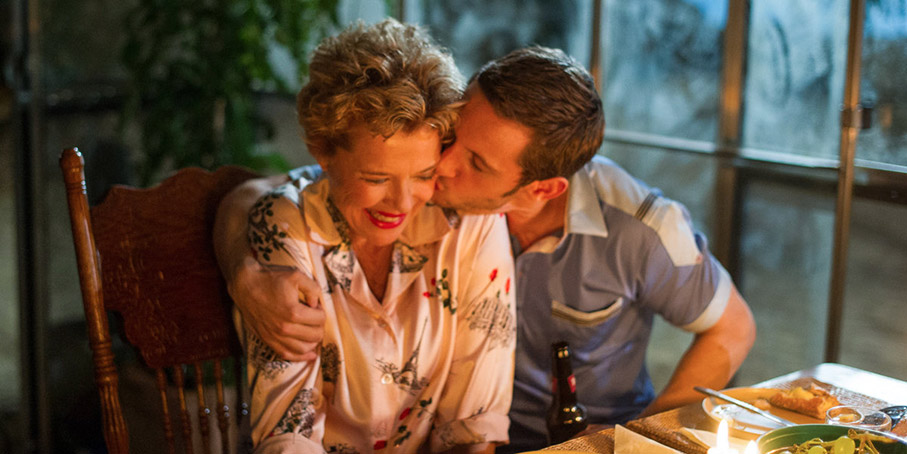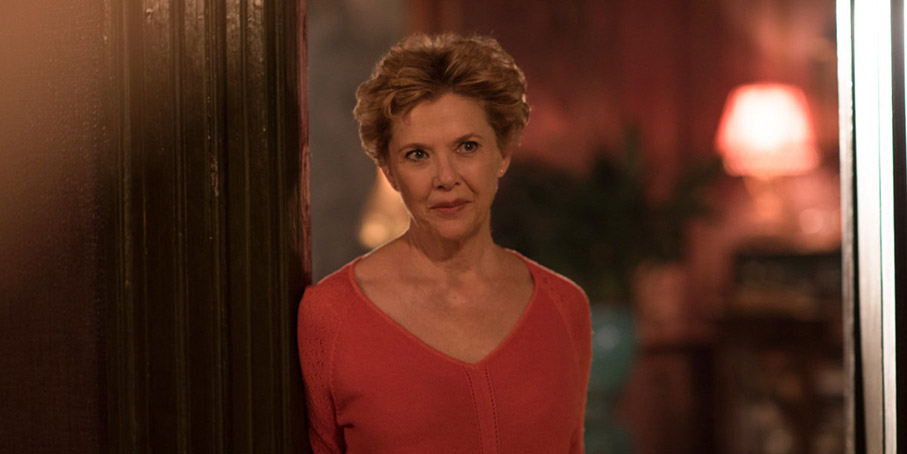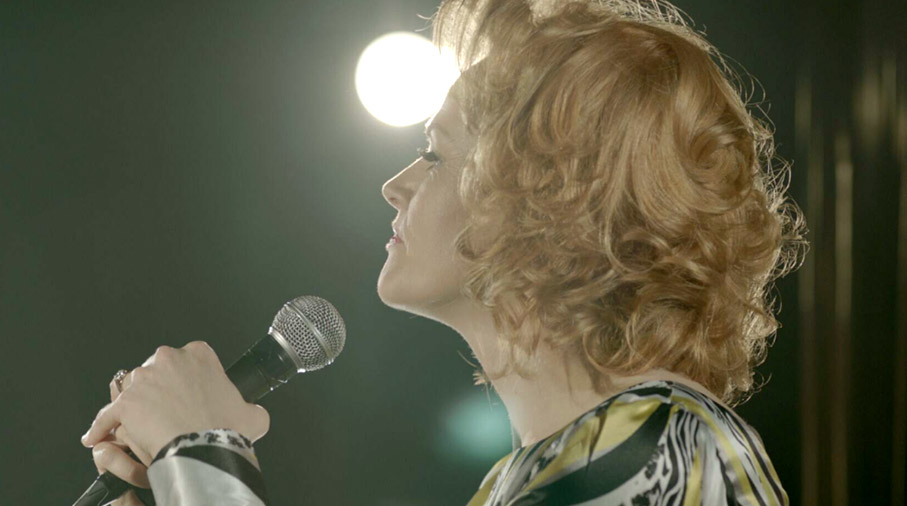|
In a series of lectures delivered at the Soviet Institute of Cinematography in the 1930s, Vsevolod Pudovkin elaborated his influential theories of montage and film acting. Fortunately, Ivor Montagu subsequently translated Pudovkin's thoughts into English, so we can now see how he helped steer screen acting away from the jaggedly stagey representations of the silent era toward the more fluidly naturalistic ones we're now accustomed to. Pudovkin stressed that possession of the prerequisite physical and technical skills alone would only take the film actor so far. Performative excellence could not be achieved if an essential personal connection with a role were absent. A film actor, he says, must have a 'deep inner interest' in any given role, each of which must sound 'an echo in the individual character and cultural background of the actor'. Essentially, if the film and the role is alien to or at one remove from the inner world and lived experience of the actor, forget it.
In Michael Hazanavicius's ravishingly beautiful, ultimately unsatisfying May '68 pastiche Le Redoutable, Louis Garrel gamely plays Jean-Luc Godard. That would be a challenge beyond most actors, even before Godard himself poured seething scorn on the project and on actors in general, but the failure here is the director's as much as the actor's. The 'interest' and 'echo' Pudovkin talks about are there, up to a point; Garrel, after all, played a soixante-huitard in Bertolucci's The Dreamers (2003) shortly before acting out his father's soixante-huitard memories in Les Amants réguliers (2005). What's lacking in Garrel's performance and Hazanavicius's film is any profound individual connection to the revolutionary spirit of the times portrayed, which is why both feel passionless despite their respective charms. They fail Pudovkin's challenge. Of course, times have changed too, so the film looks as out of place as a Che Guevara T-shirt at a Lib Dem conference.
Sometimes, though, being out of step and out of place can work in a film's favour. Certainly, both Paul McGuigan's Film Stars Don't Die in Liverpool and Adrian Shergold's Funny Cow are defiantly, deliciously at odds with the pomp and circumstance of the London Film Festival – set, as they are, primarily in the 1970s and the real world of working class life at either end of the East Lancs Road. Despite that similarity and the two exemplary female performances that drive and bind them, the films are tonal chalk and cheese. We might say they represent the good and the ugly of the North of England – with McGuigan's film speaking of its tradition of human warmth, searing honesty and solidarity against the odds; Shergold's of its tendency toward casual racism, rampant sexism and crushing conformity.

Film Stars Don't Die in Liverpool tells the poignant tale of Gloria Grahame's dying days and final fling. It takes its title from Peter Turner's intimate memoir of the same name and describes the Liverpudlian actor's affair with the fast fading star who'd not only played opposite Bogart in Nicholas Ray's In a Lonely Place (1950) but was also married to Ray when she did so. In 1978, 55 year-old Grahame and 28 year-old Turner fell in love while sharing digs in North London and it was to him she turned when cancer felled her, in 1981, while she was performing at a Lancaster theatre. The film slips back and forth across those years and the Atlantic to chart their short-lived but tender relationship and the time Grahame spent being generously cared for by Peter Turner's tight-knit family in Liverpool.
The melancholic chords of Elton John's 'Funeral For a Friend' are woven into the fabric of this fine bittersweet film but a line from In A Lonely Place might equally serve as its touchstone: "I was born when you kissed me. I died when you left me. I lived a few weeks while you loved me." The tempestuous transatlantic love affair at the heart of the film mirrors our relationship with Hollywood and is compellingly delineated by Annette Bening and Jamie Bell. Bell has fully grown since dancing his way into our affections as Billy Eliot and he manfully matches the brilliant Bening stride for confident stride, giving a mature performance that proves he's capable of deeper and more demanding roles than 'The Thing'. The film is also blessed by an extraordinarily talented supporting cast and is bucked by superb turns from Julie Walters as Turner's ma, Kenneth Cranham as his Dad, and Stephen Graham as his feisty brother. As if that embarrassment of riches were not enough, we're also treated to a delicious dinner party vignette in which Vanessa Redgrave and Frances Barber appear as Grahame's mother and sister.
The film belongs to Annette Bening though. She steals the show here just as she did as frowsy single mother Dorothea Fields in Mike Mills' 20th Century Women. We shouldn't be too surprised that she's completely convincing as an ageing American actress hailing mock New York taxis on location in downtown Liverpool. The experiential echo is deafening and the personal sympathy she must've felt for Grahame as she played her oozes from the film's very pores. She shifts effortlessly between bombshell swagger and raw vulnerability just as Gloria Grahame would've done. For despite her sassy performances in films as various as Frank Capra's It's a Wonderful Life (1946), Edward Dmytryk's Crossfire (1947) and Fritz Lang's Human Desire (1954), Grahame was riddled with pre-feminist self-doubt and hooked on plastic surgery. Bening has more faith in herself and her talent, setting vanity aside, again, to reveal the fear and fragility beneath Grahame's mask.

If intensity of acting is proportionate to the affinity actors feel towards characters, proximity of experience operates at the level of reception too. For good or ill, we feel films more intensely when they speak most directly to, and of our own lives. My own feelings for this film, for instance, are bound up with recent memories of losing my mother to cancer, in Lancaster, and boyhood memories of the warm humour that pervaded family homes in and around Liverpool. My personal pleasure was also enhanced by McGuigan's respectful references makes to Terence Davies's magisterial masterpiece Distant Voices, Still Lives (1988) and, I confess, a raucous shout of 'EVERTON' delivered to camera in a New York scene.
Perhaps more might've been made of the city's grand old vistas and buildings (Liverpool appears as New York as often as herself) but the sense of the local is strong for all that. If Jamie Bell's Scouse accent occasionally slips, the general tone rings consistently true. That it does so is due not only to the performances praised above but also to the deftness of screenwriter Matt Greenhalgh's knowing touch. Greenhalgh adapted Deborah Curtis's memoir about Ian Curtis and Joy Divisionfor Anton Corbijn's Control (2007) and he also worked with Sam Taylor-Wood on the John Lennon biopic Nowhere Boy (2009) so he, too, was working on a project and in a region with which he had some affinity.
Adrian Shergold's Funny Cow, too, feels authentically earthed; perhaps even more so than Ken Loach's Poor Cow (1967) – another film about another damaged lass and doughty survivor. The sombre subject matter of McGuigan's film is leavened with light humour but here the humour is coal black. We're in that version of the industrial North where men sport 'bugger grips' and wear machismo like protective body armour, where proud women heave under heavy fur coats and droop under the heavier threat of violence, where a couple of pints of Higson's Best or Watney's Pale Ale will set you back 90p, and where you wouldn't want to be too different – if you know what were good for you.
This darkly beautiful, deeply moving film was scripted by Sheffield-born actor Tony Pitts. Although the film is not directly based on the life of Sheffield-born comedienne Marti Caine – who called herself 'Funny Cow' and became a household name after beating Lenny Henry and Victoria Wood in the TV talent show New Faces in 1974 – the parallels between her story and that of the fictional character here are hard to ignore. Caine, who died in 1995 after a long battle with cancer, was no stranger to the kind of abusive relationships featured in Funny Cow. Her career in comedy began when she faced down fear and auditioned at a Working Men's Club to pay off a funeral debt – her alcoholic mother having committed suicide after losing her husband to cancer. Funny Cow doesn't shy away from such subject matter. La La Land this ain't.

Although the realities of sexual violence are insinuated rather than displayed, the film doesn't pull its punches. In one early scene, 'Funny Calf' (played with impish assurance by young Macy Shackleton) is literally belted by her father (played by the again-excellent Stephen Graham). Later, 'Funny Cow' (played with forensic precision and stirring passion by Maxine Peake) has her nose brutally broken by her violent partner Bob (played with fearful menace by none other than Tony Pitts).
This is far from humourless middle-class poverty porn though. No cheap holiday in other people's misery, this. Pitts and Peake (who worked together on Pitt's award-winning radio play 'On It') know their subject and pass Pudovkin's test with flying colours. They know and show the raw earthy humour they grew up with. Even within the immiserated conditions and emotional misery depicted, joy erupts. In one such moment, Funny Cow and brutish Bob stick 'Mule Train' on the jukebox and run amok in the local. It's a scene neither Andrea Arnold nor Clio Barnard could neither envisage or render. Tony Pitt. Maxine Peake. We salute you.
Funny Cow is nameless because emblematic; she is a working class Everywoman. Who better to play her than our favourite Corbynista, Maxine Peake? She presents us with an impressive range of focused close-ups – on trembling fear and stage fright, brassy defiance and dogged determination, sensitivity and tenderness. Peake's sense of timing is as impeccable as her politics; her capacity for deep-level character identification as marked as her profound understanding of social injustice. Her politics, personality, life experience and career trajectory make her perfect for this role. So perfect, actually, that her performance here is one of those that challenges theories of authorship and passes Pudovkin's test. She will soon be seen as a rebellious Puritan in the memorably titled period drama Fanny Lye Deliver'd and in Mike Leigh's Peterloo – currently shooting on location at Tilbury Fort.
Films are made collectively, of course, so others play their parts: Funny Cow is graced by delightful cameo appearances from the likes of Kopite comedian John Bishop, former Dexys Midnight Runners frontman Kevin Rowland, Pulp's Richard Hawley, the Wonderstuff's Vic Reeve's, et al. Funny Cow's mother is played with distressed force by Lindsey Coulson, unravelling as her daughter grows; Paddy Considine is daringly, if stereotypically awkward as a middle class bookseller; Alun Armstrong is memorably caustic and bleak as the comic who helps Funny Cow even when he can no longer help himself; and, impressively, the above-mentioned Stephen Graham plays not only the violent father but also the wet brother here. This is Maxine Peake's film though, just as Film Stars Don't Die in Liverpool is Annette Bening's. Three Stephen Grahams. Two fearless films, two formidable female leads, two fantastic scripts. One. True. North.
|